If you’re wondering what to feed a dog with UTI, you’re not alone. Many dog owners face the challenge of managing their pet’s urinary tract infection (UTI) and ensuring a speedy recovery. Diet plays a crucial role in supporting your dog’s health during this time, as certain foods can either aggravate or alleviate UTI symptoms. In this article, we’ll explore the best dietary tips for helping your furry friend bounce back from a UTI so you can make informed decisions about their nutrition, dog’s immune system, and well-being.
Key Takeaway
- Urinary tract infections (UTIs) are common in dogs, especially older female dogs.
- Recognizing UTI symptoms and getting proper treatment is crucial for your dog’s urinary health.
- Making dietary changes like feeding a species-appropriate diet higher in protein and lower in carbs can help prevent and alleviate dog UTIs.
- Natural remedies and increased hydration can also support your dog’s urinary tract and immune system to combat bacterial infections.
- Regularly testing your dog’s urine can help monitor pH levels and ensure effective treatment plans for UTIs.
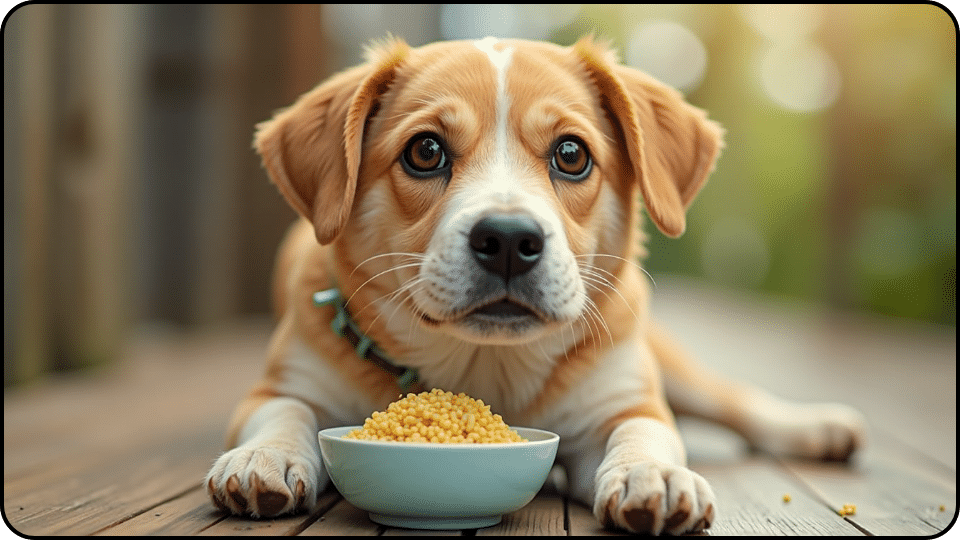
Understanding Urinary Tract Infections (UTIs) in Dogs
Urinary tract infections (UTIs) are a common issue in dogs, affecting particularly older dogs aged 7 and up. Female dogs are more susceptible due to their shorter urethras, which makes it easier for bacteria to enter the urinary tract. The primary culprit behind these infections is often Escherichia Coli bacteria, which can lead to serious health issues if not treated promptly.
Recognizing UTI symptoms is crucial for maintaining your dog’s health. Common symptoms include frequent urination, straining to urinate, blood in the urine, and excessive licking of the genital area. While male dogs can also suffer from UTIs, it is less frequent compared to female dogs. However, ignoring these signs can lead to more severe urinary tract problems, such as bladder stones or kidney infections.
Prompt veterinary care is essential for effectively treating your dog’s UTI and preventing complications. If left untreated, UTIs can escalate, causing significant discomfort and potentially leading to chronic urinary tract issues. Therefore, it’s important for dog owners to stay vigilant and seek professional help as soon as they notice any signs of a urinary tract infection.

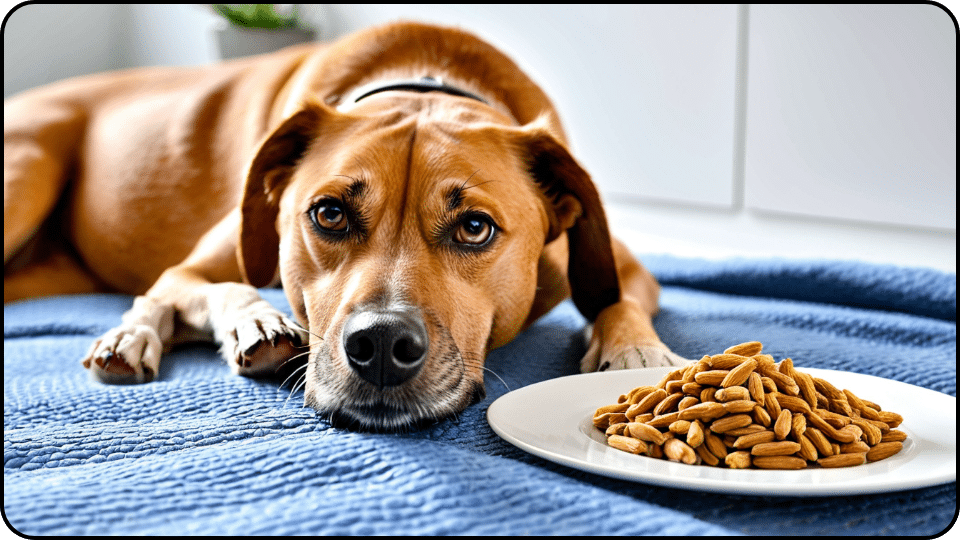
Optimizing Your Dog’s Diet for UTI Recovery
A whole-food, species-appropriate diet is essential for maintaining your dog’s urinary tract health. This type of diet should be rich in high-quality proteins and low in carbohydrates. By reducing carbs, you help maintain a healthy urinary tract pH, which supports your dog’s immune system and prevents the growth of harmful bacteria. Avoid feeding your dog starchy carbohydrates such as beans, potatoes, and rice. These foods can increase inflammation and promote the proliferation of bacteria, potentially worsening UTI symptoms.
Incorporate more raw fruits and vegetables into your dog’s food. These whole foods are packed with nutrients that can bolster your dog’s immune system. Additionally, consider sprinkling natural remedies like marshmallow root and cranberries directly onto the dog’s food to enhance their diet and combat UTIs. However, be cautious with certain vegetables. Spinach, asparagus, and tomatoes can aggravate UTIs, so it’s best to avoid them. Similarly, raw carrots and dairy products should be limited as they may contribute to urinary tract irritation.
Consult with a holistic vet to tailor a diet plan that meets your dog’s specific needs. Every dog is unique, and what works for one may not work for another. A holistic vet can provide guidance on the best dietary choices for your pet, helping to alleviate UTI symptoms and prevent future complications. They may suggest specific supplements or adjustments to your dog’s food to optimize urinary health.
Here’s a quick summary of dietary tips:
- Include: Lean proteins, raw fruits, and vegetables (except those that aggravate UTIs).
- Avoid: Beans, potatoes, rice, spinach, asparagus, tomatoes, raw carrots, and dairy products.
- Consult: Seek advice from a holistic vet for a personalized diet plan.
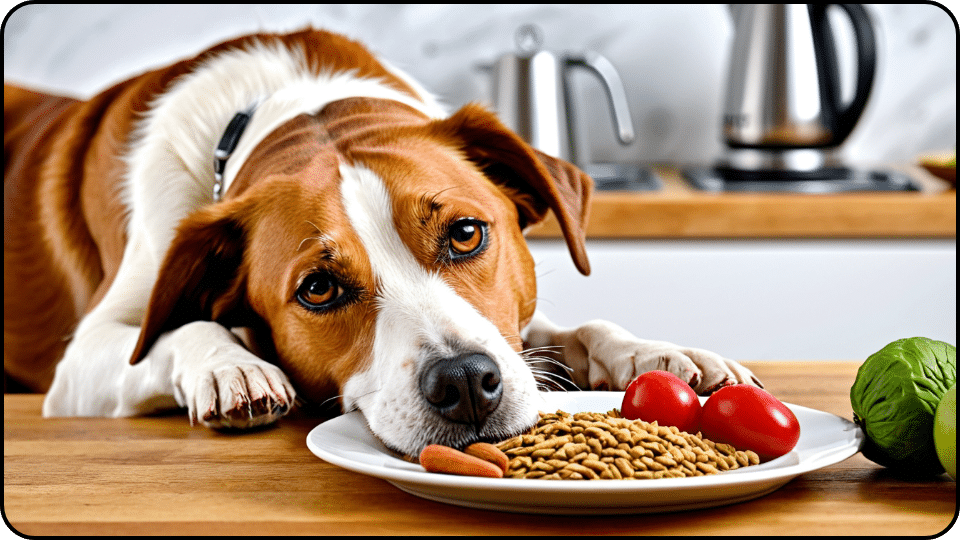

Nutritional Support for Your Dog’s Urinary Tract Health
Cranberries, blueberries, and cranberry supplements can be a great addition to your dog’s diet when dealing with urinary tract infections. These berries are rich in antioxidants and have properties that prevent harmful bacteria from attaching to the urinary tract lining. By incorporating them into your dog’s meals, you help create a hostile environment for bacteria, reducing the risk of infections. While cranberries and blueberries help prevent harmful bacteria, it’s also important to maintain healthy bacteria in your dog’s gut to support overall urinary health.
Adding a small amount of apple cider vinegar to your dog’s water bowl can also be beneficial. This natural remedy helps balance pH levels, creating slightly acidic urine that discourages bacterial growth. It’s important to introduce apple cider vinegar gradually and monitor your dog’s response, as some dogs may be sensitive to it. A typical starting point is one teaspoon per quart of water.

In addition to cranberries and apple cider vinegar, consider adding fresh lemon juice to your dog’s diet. Lemon juice can help maintain a healthy pH balance in the urinary tract. A balanced diet focused on your dog’s urinary health can significantly reduce the chances of recurrent UTIs. Providing a variety of these natural remedies can support your dog’s immune system and promote overall urinary tract health.
For a comprehensive approach, consider creating a dietary plan that includes these elements. Here’s a suggested table of additions to your dog’s diet:
| Dietary Addition | Benefit | Suggested Amount |
|---|---|---|
| Cranberries | Prevent bacteria attachment | 1-2 tablespoons daily |
| Blueberries | Rich in antioxidants | 1-2 tablespoons daily |
| Cranberry Supplements | Supports urinary tract health | As per supplement guidance |
| Apple Cider Vinegar | Balances pH levels | 1 teaspoon per quart of water |
| Fresh Lemon Juice | Maintains a healthy pH balance | A few drops mixed in water |
Always consult your veterinarian before introducing new foods or supplements to ensure they are appropriate for your dog’s specific health needs.

Complementary Home Remedies for UTI Relief
Herbal remedies like juniper berries, urva ursi (bearberry), parsley leaf, marshmallow root, and couch grass offer natural relief for dogs with urinary tract infections (UTIs). These herbs help filter impurities, reduce bacteria levels, stop minor bleeding, and minimize inflammation. Incorporating these into your dog’s diet can provide a gentle, holistic approach to managing UTIs.
Juniper berries are particularly beneficial as they increase urine production, helping to flush out bacteria from the urinary tract. Urva ursi acts as an astringent, reducing inflammation and soothing the urinary tract lining. Parsley leaf, known for its antimicrobial and antiseptic properties, can help combat harmful bacteria, while marshmallow root and couch grass work to soothe and protect the urinary tract.
Many holistic vets recommend these natural treatments to relieve UTI symptoms and support urinary health. However, it’s crucial to consult your vet before giving your dog any herbal remedies. Improper dosing can be harmful, and your vet can provide guidance on the right amounts for your dog’s size and condition.
Here’s a quick reference table for herbal remedies:
| Herbal Remedy | Benefit | Suggested Use |
|---|---|---|
| Juniper Berries | Increases urine production | Consult a vet for dosage |
| Urva Ursi | Reduces inflammation | Consult a vet for dosage |
| Parsley Leaf | Antimicrobial, antiseptic properties | Consult a vet for dosage |
| Marshmallow Root | Soothes urinary tract | Consult a vet for dosage |
| Couch Grass | Protects urinary tract | Consult a vet for dosage |
These herbal remedies, when used correctly, can be a valuable part of a comprehensive approach to treating UTIs, alongside proper diet and hydration.

Managing Your Dog’s Hydration for UTI Prevention
Ensuring your dog stays well-hydrated is essential for preventing urinary tract infections (UTIs). Providing plenty of fresh drinking water encourages frequent urination, which helps flush out bacteria from the urinary system. This simple practice not only prevents UTIs but also keeps your dog hydrated and healthy.
A moisture-rich diet is another effective way to boost your dog’s hydration levels. Incorporating wet food or adding water to dry kibble can significantly enhance moisture intake. Bone broth is a fantastic addition, offering both hydration and essential nutrients. This approach is crucial for maintaining your dog’s overall health and preventing urinary tract issues.
If your dog is reluctant to drink enough water, try creative methods to increase their intake. Adding ice cubes to their water bowl can make drinking more appealing, especially during warmer months. Ice cubes can also serve as a fun treat, encouraging your dog to consume more water. Additionally, offering small amounts of unsalted chicken broth can entice your dog to drink more, ensuring they stay properly hydrated.
Here’s a quick summary of hydration tips:
- Provide: Fresh drinking water at all times.
- Incorporate: Wet food, bone broth, or water into meals.
- Encourage: Ice cubes as treats or unsalted chicken broth for flavor.
Maintaining proper hydration is a vital part of your dog’s care routine. By ensuring they have access to water and moisture-rich foods, you can help prevent UTIs and support their overall well-being.
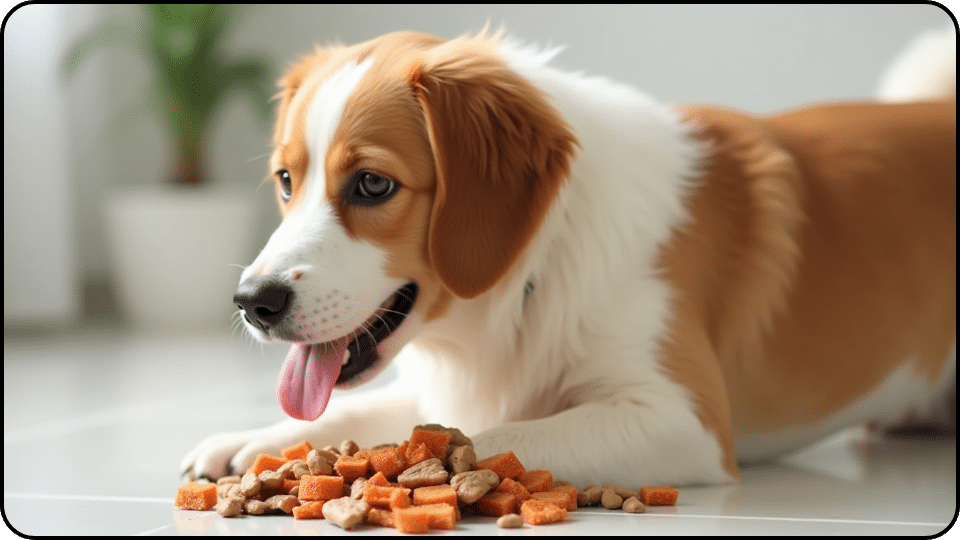

Working with Your Veterinarian
Consulting with your veterinarian is crucial before using any home remedies or herbal treatments. Some of these can be toxic if used in the wrong dose. Your vet can provide guidance on the safest and most effective options tailored to your dog’s specific needs. This ensures that your furry friend receives the best care possible without unnecessary risks.
Veterinarians might recommend natural supplements that contain ingredients like cranberry, echinacea, or other beneficial herbs. These supplements are known to help reduce inflammation in your dog’s urinary tract. They also play a role in avoiding antimicrobial resistance, which can occur from the overuse of antibiotics. By opting for these natural treatments, you can help manage your dog’s UTI symptoms more holistically.
If your dog’s UTI symptoms persist or worsen, it may be necessary for your vet to prescribe antibiotics. Antibiotics are often required for proper treatment of bacterial infections. It’s important to ensure that your dog takes the full course of any prescribed antibiotics. Completing the full course helps to fully resolve the bacterial infection, preventing any recurrence or resistance.
Here’s a quick checklist for managing your dog’s UTI:
- Consult Vet: Before starting any home remedies or supplements.
- Consider Supplements: Cranberry, echinacea, or other herbal options.
- Complete Antibiotics: Ensure your dog finishes the prescribed course.
By working closely with your veterinarian, you can effectively manage your dog’s UTI. This approach combines professional advice with natural remedies and, if necessary, antibiotic treatment to ensure your pet’s urinary health is well-protected.
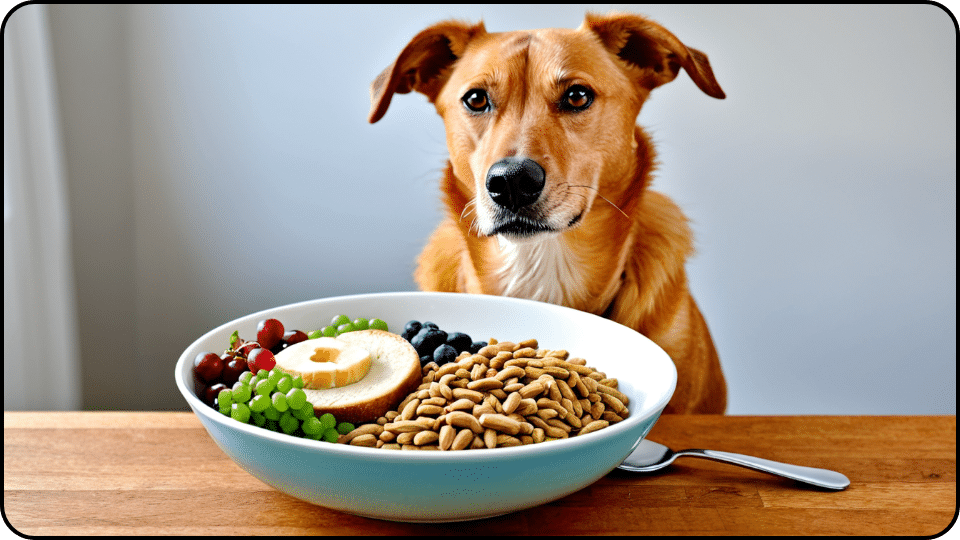
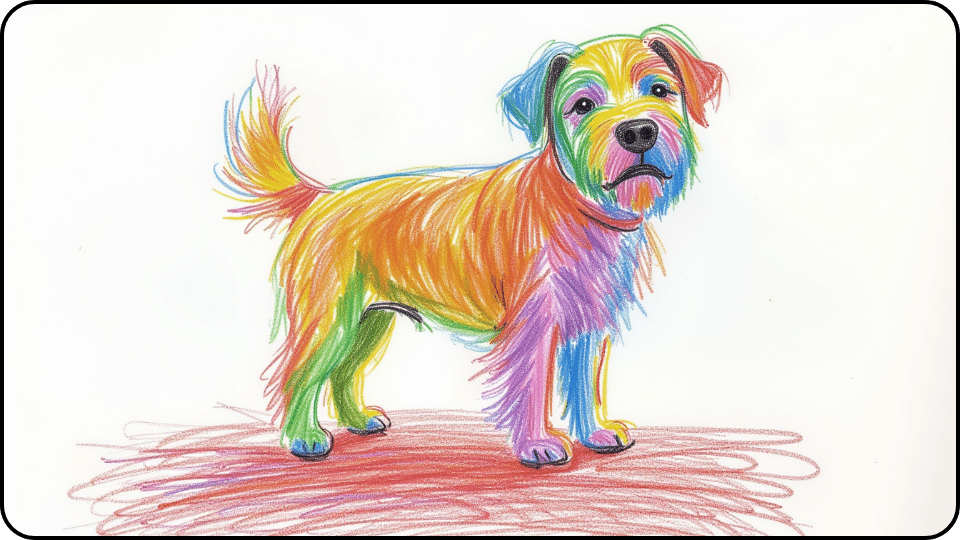
Final Thought
By recognizing the signs of urinary tract infections in your dog and taking proactive steps with diet, hydration, and natural remedies, you can help relieve your dog’s UTI symptoms and prevent recurrences. Work closely with your veterinarian to determine the best course of treatment for your dog’s individual needs. With proper care and a balanced diet, you can support your dog’s urinary health and keep UTIs at bay.
Quick Answers for FAQs
What is an Urinary Tract Infection (UTI)?
Normal dog urine is typically slightly acidic, with a pH range of about 6 to 7.5. As carnivores, dogs require a protein-rich diet. If the urine’s pH level becomes too high or too low, it can lead to the formation of crystals or uroliths. This issue often arises from inappropriate diets, such as highly processed kibble, which is loaded with carbohydrates and vegetables. Additionally, some dietary supplements are high in magnesium and phosphate, contributing to the formation of struvite crystals.
What food is good for dogs with UTI?
A diet rich in whole foods, such as lean proteins and certain raw fruits and vegetables, can support a dog’s urinary health. Foods like cranberries and blueberries are particularly beneficial as they prevent bacteria from adhering to the urinary tract lining. Avoid starchy carbohydrates and foods that can aggravate UTIs, like spinach and asparagus.


How can I treat my dog’s UTI at home?
To treat your dog’s UTI at home, ensure they have plenty of fresh water to flush out bacteria and consider adding natural remedies like cranberry supplements or apple cider vinegar to their diet. It’s crucial to consult with your veterinarian before starting any home treatment to ensure it’s safe and effective for your dog’s specific condition.
Is rice good for dogs with UTI?
Rice is generally not recommended for dogs with UTIs, as it can increase inflammation and promote the growth of harmful bacteria. Instead, focus on a diet high in lean proteins and low in starchy carbohydrates to support urinary health.
Should a dog with a UTI drink a lot of water?
Yes, a dog with a UTI should drink plenty of water. Increased hydration helps flush out bacteria from the urinary tract, promoting healing and preventing further infections.

